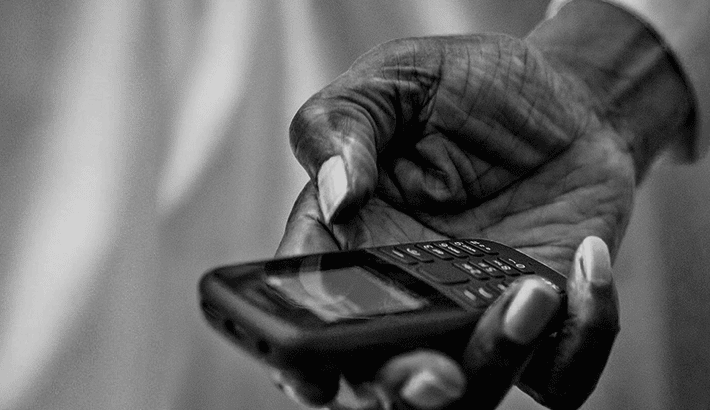The Opensignal Global Network Excellence Index, a comprehensive ranking system evaluating mobile network performance across 136 markets, has ranked Nigeria in the 105th position globally and ninth in Africa based on three pillars:4G/5G Availability: the proportion of time users are connected to modern networksExcellent Consistent Quality: the ability to support demanding applications like video streaming and gaming4G/ 5G Download Speeds: indicating network capacity for current and future demandsThese metrics reflect countries’ ability to provide reliable, high-quality mobile connectivity for their citizens and build a digital economy.South Korea leads the global ranking. The Scandinavian countries of Finland, Norway, Denmark and the Netherlands complete the global top 5 as 2nd to 5th, respectively.
South Africa is the leading African country on the global index with a 60th global ranking. Tunisia is 2nd with 85.And, Kenya comes third with a 90th standing.

The African top 10 list is completed by Madagascar (95), Morocco (96), Egypt (97), Algeria (101), Senegal (103), Nigeria (105) and Burkina Faso (106). Global Network Excellence IndexIn 2023, Nigeria’s mobile market was characterised by robust 4G adoption but limited 5G penetration. The country ranked modestly in the Global Network Excellence Index, reflecting challenges such as uneven infrastructure deployment, particularly in rural areas, and spectrum allocation delays.
However, by Q1 2025, Nigeria showed notable improvements, driven by regulatory reforms, operator investments, and increasing 5G rollouts, positioning it as an emerging market leader in mobile connectivity.A breakdown of mobile network performance in Nigeriaa. 4G/5G Availability In 2023, Nigeria’s 4G/5G Availability was constrained by its reliance on 4G networks, with 5G deployments in their infancy.
The Opensignal data indicated that Nigerian users spent a significant portion of their time on the 4G network. However, 5G access was limited to urban centres like Lagos and Abuja, where operators like MTN and Airtel began commercial 5G services in 2022. By 2024, Nigeria’s 4G/5G Availability improved as operators expanded 5G networks and refarmed spectrum from legacy 2G/3G technologiesOpensignal noted that emerging markets saw pronounced gains in availability due to investments in low-band spectrum (e.
g., 700 MHz), which enhances rural coverage.5G connectionNigeria’s 4G/5G Availability ranking climbed by the end of the first quarter of 2025, aligning with upper-middle-income markets.
This progress was bolstered by regulatory efforts from the Nigerian Communications Commission (NCC), which accelerated 5G spectrum auctions and incentivised infrastructure sharing.However, low-income and rural areas still lag, with some users reverting to 2G/3G due to congestion or signal loss.b.
Excellent Consistent QualityExcellent Consistent Quality (ECQ) measures a network’s ability to support applications requiring stable connections, such as video calls and online gaming. In 2023, Nigeria’s ECQ ranking was moderate, reflecting challenges in delivering consistent performance across diverse geographies. Urban users enjoyed relatively stable experiences, but rural and semi-urban areas faced issues due to limited backhaul capacity and network congestion.
By 2024, its ECQ improved, driven by operator investments in mid-band spectrum (e.g., 3.
5 GHz), which balances coverage and capacity.Opensignal’s Q1 2025 update highlighted that Nigeria’s ECQ remained stable despite rising 5G adoption, suggesting that operators successfully managed increased network loads. The country outperformed several peers in its economic group, with operators like MTN and Globacom earning recognition for consistent quality in urban markets.
Nonetheless, rural connectivity gaps persisted, underscoring the need for targeted infrastructure investments.c. Download SpeedsDownload speed is a critical indicator of a network’s capacity to handle data-intensive applications.
In 2023, Nigeria’s 4G download speeds were competitive within Sub-Saharan Africa but trailed global leaders like South Korea and Denmark.5G download speeds were not widely measured, owing to limited deployments, and Nigeria’s ranking in this category reflected its early-stage 5G ecosystem.By 2024, Nigeria’s 5G download speeds surged in urban areas, with operators leveraging mid-band spectrum to deliver faster connections.
Opensignal’s Q1 2025 data showed Nigeria advancing in 5G download speed rankings, particularly among small land area markets, as operators prioritised capacity over peak throughput.However, 4G download speeds saw minor declines due to increased reliance on 4G as a fallback network, a common trend in maturing 5G markets. Nigeria’s overall download speed ranking improved, reflecting its growing digital competitiveness.
Key drivers, challenges and the road aheadNigeria’s progress in the Global Network Excellence Index stems from several factors. First, proactive spectrum management by the NCC, including auctions of 3.5 GHz and 700 MHz bands, has enabled operators to expand 5G and enhance 4G coverage.
Second, infrastructure-sharing models have reduced costs, allowing operators to deploy networks in underserved areas. Third, rising smartphone penetration and digital literacy have driven demand for high-quality connectivity, pushing operators to innovate.However, challenges remain.
Rural connectivity gaps, driven by difficult terrain and low-income demographics, limit 4G/5G Availability and ECQ. Congestion in urban areas, exacerbated by rapid data consumption, strains network capacity. Additionally, delays in shutting down legacy 2G/3G networks hinder spectrum refarming, slowing 5G expansion.
Addressing these issues requires sustained investment, regulatory support, and public-private partnerships.Bosun Tijani, Nigeria’s Minister of Communications, Innovation and Digital EconomyNigeria’s trajectory in the Global Network Excellence Index from 2023 to Q1 2025 reflects a dynamic mobile market poised for growth. The country’s improved rankings in 4G/5G Availability, ECQ, and download speeds highlight its potential to lead in Sub-Saharan Africa.
To sustain this momentum, Nigeria must prioritise rural connectivity, accelerate 5G deployments, and enhance network resilience. Opensignal’s case studies of leading markets like Denmark and South Korea suggest that spectrum efficiency, regulatory innovation, and infrastructure investment will be critical for Nigeria’s digital transformation.As Nigeria navigates its mobile network evolution, the Global Network Excellence Index serves as a valuable benchmark for policymakers, operators, and consumers.
A deliberate effort in addressing connectivity gaps and leveraging 5G’s potential will aid Nigeria in bridging the digital divide, fostering economic development, and ensuring seamless digital experiences for its over 200 million population..
Technology

Nigeria ranks 105 on global 5G, 4G network index; 9th in Africa behind SA, Tunisia, Kenya

The Opensignal Global Network Excellence Index, a comprehensive ranking system evaluating mobile network performance across 136 markets, has...















